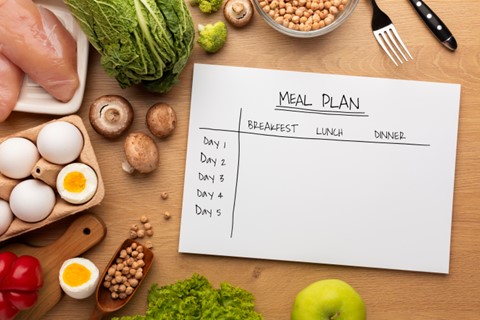Maintaining a healthy weight is crucial for overall well-being. While many focus on weight loss, there are individuals who struggle with gaining weight due to various reasons such as illness, recovery from surgery, or underlying medical conditions. For these patients, a carefully crafted weight gain diet can play a pivotal role in replenishing lost nutrients, promoting healing, and restoring vitality. In this blog, we will explore a comprehensive weight gain diet plan tailored to meet the specific nutritional needs of patients.
- Seek Professional Guidance: Before embarking on a weight gain diet, it is essential to consult a registered dietitian or a healthcare professional who can assess your individual needs and provide personalized guidance. They will consider factors such as your medical history, current health condition, dietary restrictions, and lifestyle to create a plan that suits you best.
- Caloric Surplus: To gain weight, you need to consume more calories than your body burns. However, it is crucial to focus on healthy sources of calories rather than indulging in empty calories from processed foods. Aim for a caloric surplus of 500-1000 calories per day, depending on your goals and metabolic rate.
- Emphasize Nutrient-Dense Foods: Choose foods that are rich in nutrients, vitamins, and minerals to ensure that your weight gain is accompanied by optimal health. Include a variety of whole grains, lean proteins, healthy fats, and fresh fruits and vegetables in your diet.
- Carbohydrates for Energy: Carbohydrates are the body’s primary source of energy. Opt for complex carbohydrates such as whole grains (brown rice, quinoa, whole wheat bread) and starchy vegetables (sweet potatoes, peas, corn) rather than refined carbohydrates. These provide sustained energy and essential fiber.
- Protein Power: Protein plays a crucial role in building and repairing tissues. Include lean sources of protein such as chicken breast, fish, eggs, beans, lentils, and tofu in your meals. Aim for approximately 1.2-1.5 grams of protein per kilogram of body weight to support muscle growth and recovery.
- Healthy Fats: Incorporate healthy fats into your diet to boost calorie intake and support overall health. Include foods like avocados, nuts, seeds, olive oil, and fatty fish (salmon, mackerel) that provide essential omega-3 fatty acids. However, be mindful of portion sizes as fats are calorie-dense.
- Regular Meals and Snacks: Divide your daily caloric intake into several small meals and snacks to make it easier to consume the required amount of calories. This approach also prevents overwhelming the digestive system and helps maintain a steady supply of energy throughout the day.
- Hydration is Key: Staying hydrated is essential for overall health. Drink an adequate amount of water throughout the day to support digestion, nutrient absorption, and cellular function. Avoid excessive consumption of sugary beverages as they provide empty calories.
- Balanced Nutrient Distribution: Ensure your meals are well-balanced, including a combination of carbohydrates, proteins, and fats. This approach aids in the proper utilization of nutrients and prevents imbalances.
- Monitor and Adjust: Regularly monitor your weight, energy levels, and overall well-being. Adjust your diet and calorie intake as necessary to maintain a gradual and sustainable weight gain.
A weight gain diet for patients should prioritize nutrient-dense foods, promote a caloric surplus, and focus on overall health. While gaining weight is the primary goal, it should not come at the expense of neglecting the nutritional quality of your diet. Remember, patience and consistency are key.



